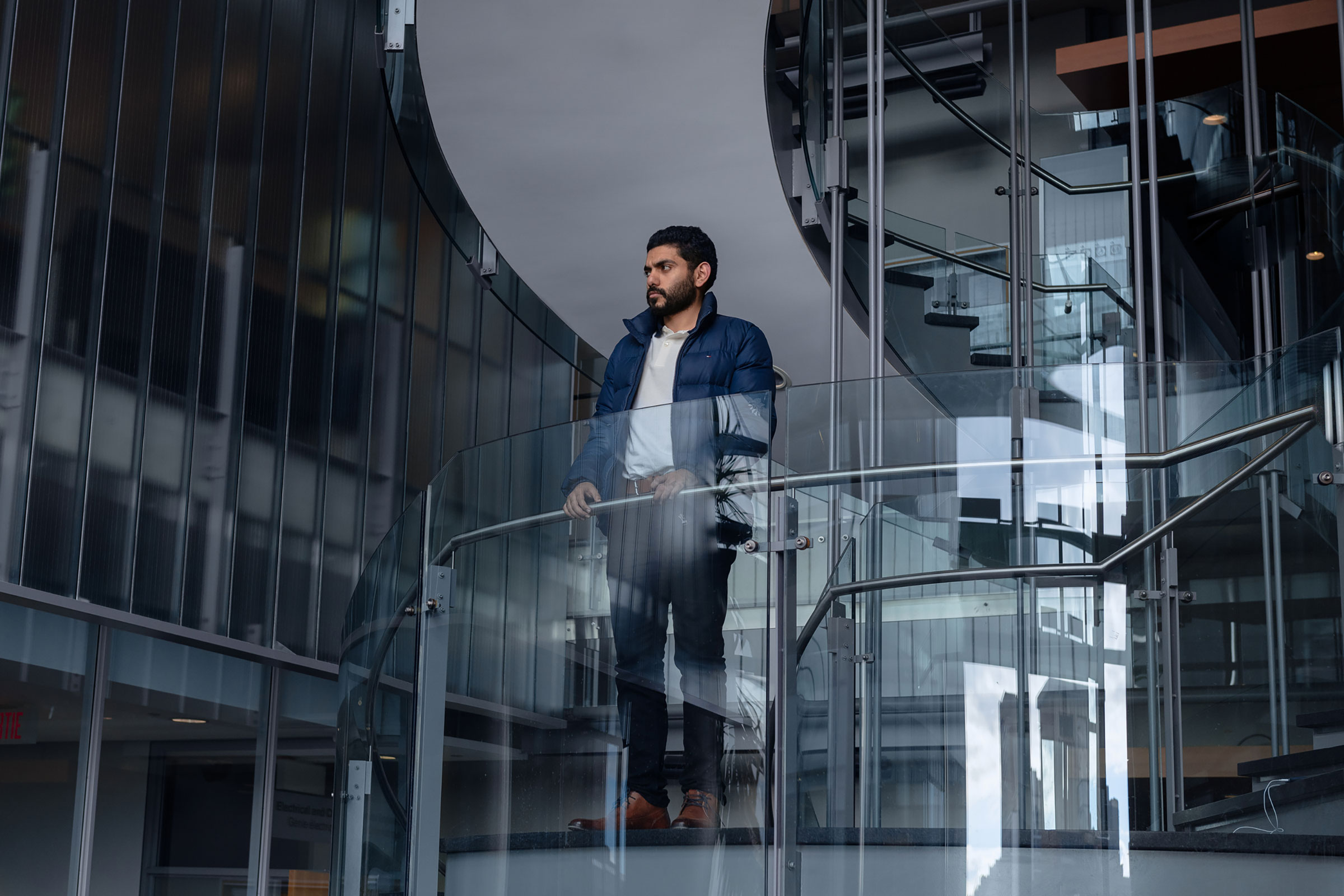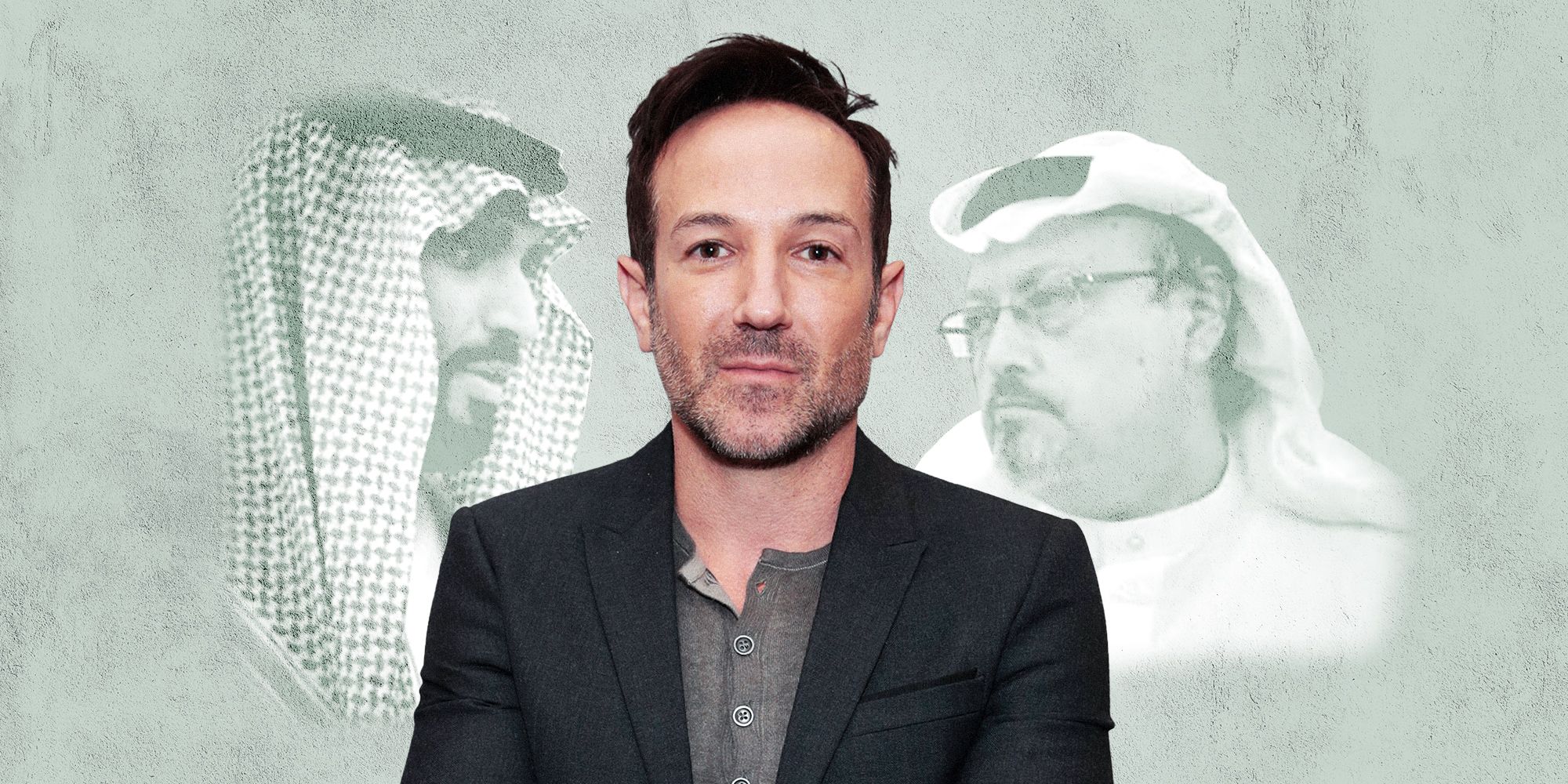The Dissident (2020) is a chilling documentary thriller that unveils the full story behind the shocking murder of journalist-turned-dissident Jamal Khashoggi.
Summary (mild spoilers)
Bringing a cinematic vision to the real-life story (spoilers)
‘I know why Jamal was killed’: The Dissident & The Bees Project (spoilers)
Reimagining the Trojan Horse: The Pegasus Hack & Jeff Bezos (spoilers)
The Dissident Netflix: How Global Streamers Change Under Digital Capitalism (spoilers)
Summary (mild spoilers)
The Dissident offers an unprecedented look at Jamal Khashoggi’s murder in Saudi Arabia’s consulate in Istanbul, Turkey. Following in the steps of fiancée Hatice Cengiz (a Turkish scientist) and fellow dissident Omar Abdulaziz (a Saudi activist), it also deals with the repercussions and aftermath of the murder that shocked the world in 2018. The thriller documentary combines archival and original footage to provide the backstory of Jamal’s journey from a respected journalist to an exiled dissident. There is no doubt that Khashoggi’s murder was planned, but what comes as a shock, is the bigger picture behind it and what it holds for our future.

Bringing a cinematic vision to the real-life story (spoilers)
In the past couple of years, we have seen the rise of documentaries that use cinematic techniques. The Social Dilemma (2020), for instance, criticized social media, depicting Facebook’s algorithm like a twisted Inside Out emotion controller, starring all-time-fave douche Pete Campbell. The Great Hack (2019) utilized visuals that reminded us of Nolan’s Inception and BBC’s Sherlock to present complex new phenomena like ‘data rights’ in a more compelling way. Helmed by Icarus’ Academy Award-winning director Bryan Fogel, The Dissident documentary plays like a Bourne spy thriller that also somehow feels like a prequel to all evil A.I. / cyberpunk blockbusters.
The Dissident documentary is packaged like a sleek spy movie. It draws you in, so it can deliver a harrowing cautionary tale on the future of human rights under digital capitalism and cyber-surveillance. On Rich Roll’s podcast, Bryan Fogel motivates this creative choice with the idea that presenting this story as ‘an emotional journey’ rather than ‘a piece of news’ feels more poignant. If you watch the movie, you would find it difficult to argue. Despite or maybe due to the time that has passed since, the lack of justice, and the way the Trump administration (mis)handled the case, Khashoggi’s case still feels relevant today. In light of Navalny’s unlawful arrest and uncertain fate, it also feels like an ominous warning.
Back in 2018, there was a lot of controversy surrounding every aspect of the murder – from the delayed investigation to the unconvincing cover story issued by Saudi state officials citing an operation gone rogue. The Dissident addresses all of these, taking its time to get to the bottom of the affair. By the end of it, however, you understand that the story isn’t just about what happened to Khashoggi. It’s about the people who have taken it upon themselves to carry his legacy and seek justice – Omar Abdulaziz and Hatice Cengiz. This means risking your life and taking on states with their global financial interests.

‘I know why Jamal was killed’: The Dissident & The Bees Project (spoilers)
The reason, as Bryan Fogel puts it, Khashoggi’s murder had such a tremendous global impact can be traced back to his work as a journalist for The Washington Post. Jamal Khashoggi was born and raised in Saudi Arabia. He became well-known for his work.His reputation was that of a moderate reformist and an insider into the Kingdom’s royal affairs and politics. His education and work abroad, meanwhile, allowed him to act as Saudi Arabia’s ambassador in the West. Events like the Arab Spring revolutions and Saudi Arabia’s Crown Prince Mohammad Bin Salman’s (MBS) oppressive policy regarding free speech triggered his transition from a journalist to a dissident’s protégé.
Sometime after Jamal Khashoggi fled his home country and tried to settle down in the States, he met with Omar Abdulaziz, a member of a group of Saudi dissidents living in Canada. Omar Abdulaziz, a vlogger and an activist, serves as our second protagonist. Introducing himself as Jamal’s ally, he turns out to be the one that holds the key to the mystery of his murder – Twitter and ‘The Bees Project’. Twitter, once known as DT’s favorite platform, was the tool that enabled the Arab Spring uprisings (known as ‘Twitter revolutions’). In Saudi Arabia we learn that 8/10 people use Twitter as their news outlet.
If you control Twitter, you essentially control the narrative (i.e. when news about Jamal’s murder broke out, just 281 accounts drove 80% of the discourse regarding the event in the region). So, Omar and his allies had found out that the Saudi Kingdom employed a special team to push forward the state’s agenda (like a swarm of flies), squashing activists and critics in the process. Omar and the others came up with an idea that could overcome the flies using the same tactic, ‘The Bees Project’. He shared his idea with Jamal, who offered to finance the project that would allow dissidents to strengthen their online presence on Twitter, so their beehive can have a fairer chance against the Kingdom’s fly network. It worked.

Reimagining the Trojan Horse: The Pegasus Hack & Jeff Bezos (spoilers)
According to Omar, it was precisely the rise of the bees and their success that sealed Khashoggi’s fate. How did the government know about his involvement? It was through Israel’s cyberware, Pegasus, which was installed on Omar’s hacked phone. It enabled Saudi officials to trace the sponsor of ‘The Bees Project’ back to Khashoggi. Back in 2018, a few months after Khashoggi’s murder, we learn that Jeff Bezos was supposed to take part in ‘Davos in the desert’ as a special guest investor. The annual event is a part of MBS’ vision (#Vision2030) to modernize the country, diversify its economy, and keep up with the times.
The times nowadays demand less oil, more solar energy, and electricity. Clouds and cybersecurity too. When Jeff Bezos pulled out of the summit, his phone was hacked with Pegasus. As a result, his personal photos were leaked. His high-profile divorce costed him his number one spot as the richest person in the world. Instead of killing the Khashoggi story, his newspaper, The Washington Post, kept running stories on the murder. In the end, no one was held accountable for Khashoggi’s death and the lack of action proved to the world that where investment is involved, profit is sometimes valued over freedom of speech.
Maybe if we are to envision the confrontation between Saudi’s flies and Omar’s bees as the Trojan War for the attention of Saudi Arabia’s public, then the Pegasus spyware, employed by the Saudi officials, acted as the Trojan horse. Developed by NSO Group, an Israeli company, the country allows the sale of said spyware to any country. Canadian-based Citizen Lab, which discovered Omar’s hacked mobile device, has reported that Pegasus operates in 45 countries. Even though Pegasus is allegedly used to ‘prevent crime and terror, it has been used to hack the phones of journalists and Al-Jazeera reporters.

The Dissident Netflix: How Global Streamers Change Under Digital Capitalism (spoilers)
After receiving an outstanding ovation at Sundance, you would think that every film distribution company and big streamer would be tripping over themselves to buy the distribution rights. In a surprising turn of events, Bryan Fogel’s movie came out of the prestigious festival without a single distribution offer. Not from Netflix, which distributed Icarus and worked hard to snag the Oscar nom and win. Not from Jeff Bezos’ Amazon Prime or a rising indie studio like NEON. The reasons behind them, as Bryan put it bluntly, are fear of hacking (risk assessment) and economic interests (getting a share of the Saudi market).
In 2014, Sony was hacked by North Korea over a James Franco/Seth Rogen comedy, parodying North Korea’s leader. It makes sense that studios would be hesitant to put their name under a documentary that depicts another authoritarian regime in a negative light. It also sets a dangerous precedent. You needn’t look far to see how censorship can become PR crisis management. Netflix’ satirical series Patriot Act with Hasan Minhaj released an episode criticizing Saudi Arabia and Khashoggi’s killing. Later, the episode was removed. Why? Netflix had signed a lucrative, long-term business deal with the Saudi Kingdom.
In The Dissident’s distribution case the lack of financial support feels like an act of complicity in silencing our protagonists. In a voice message from September 2018, Jamal expresses his admiration of Hatice’s intelligence and strength, envisioning her as one of the up-and-coming great voices in Turkey and the Arab world. You can see it for yourself when she makes her appeal to the U.N., where the Saudi officials walk out unceremoniously. Her plea for justice is so impactful that it makes you wonder how her career and life would have progressed otherwise. Or Omar’s, for that matter. We are also left to wonder about the future of Saudi Arabia and its people, all of which essentially means that director Bryan Fogel’s mission has been quite successful.

Final Thoughts on Bryan Fogel’s The Dissident
Bryan Fogel’s The Dissident is not only a worthy follow-up to Icarus but also an affecting piece of (documentary) filmmaking. It comes on the heels of another documentary on Jamal Khashoggi’s murder, which goes on to show Jamal’s lasting influence both in the Arab world and the West. It also raises serious questions about the future of Saudi Arabia, the use of cyberware as a de-territorialized weapon, as well as the censorship of free speech in the age of global streamers and digital capitalism. The Dissident is available to stream on Apple TV, Fandango, Prime Video, VUDU, and redbox.
Disclaimer: All rights belong to their respective companies and owners. All media is used for educational purposes only. This language isn’t even my native language.
